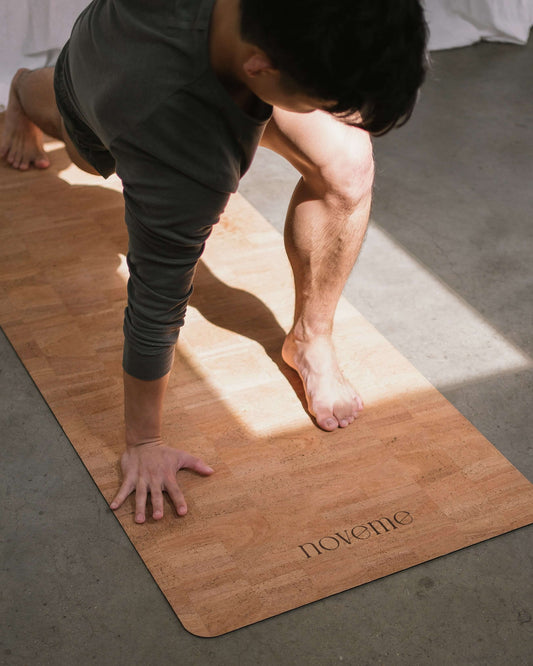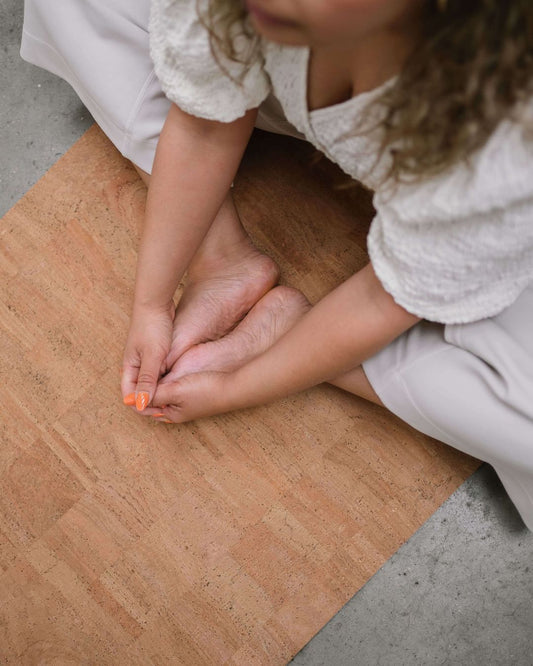March is National Bed Month in the UK, which makes it the perfect time to focus on getting a good night's sleep. Sleep is an essential part of overall health and wellbeing, yet many of us struggle to get the recommended amount of sleep each night. Poor sleep can have a significant impact on our physical and mental health, as well as our daily lives. In this article, we'll provide you with some tips on how to create a relaxing bedtime routine.

HOW MUCH SLEEP DO ADULTS NEED
The British Sleep Society recommends that adults aim to get 7-9 hours of sleep per night. However, the actual amount of sleep an individual needs can vary depending on factors such as age, lifestyle, and individual needs. Children and teenagers generally require more sleep than adults, while older adults may require slightly less. It's important to listen to your body and get enough sleep to feel rested and refreshed. If you're consistently having trouble sleeping or not feeling rested, it's a good idea to speak with a healthcare professional for guidance.
THE IMPORTANCE OF ESTABLISHING A BEDTIME ROUTINE
Having a consistent bedtime routine can influence the quantity and quality of your sleep. A relaxing bedtime routine can help signal to your body that it's time to wind down and prepare for sleep, making it easier to fall asleep and stay asleep. This is because the routine can help reduce stress and anxiety, and create a sense of calm and relaxation that is conducive to sleep.
Additionally, following a consistent bedtime routine can help regulate your body's internal clock or circadian rhythm, which is responsible for controlling the timing of various physiological processes, including sleep-wake cycles. By going to bed and waking up at the same time each day and following a regular routine before bed, you can help your body's internal clock adjust to a healthy sleep pattern.
Overall, developing and maintaining a consistent bedtime routine can be a helpful strategy for improving the quantity and quality of your sleep.
TIPS TO CREATE A RELAXING BEDTIME ROUTINE
1. CREATE A GOOD SLEEP ENVIRONMENT
Having your bedroom as a calm, clean, and uncluttered environment is key to promoting good sleep. Here are some key factors to consider when creating a good sleep environment:
- Darkness: A dark room can help promote the production of melatonin, a hormone that regulates sleep-wake cycles. If you can’t blackout your room, try slipping with an eye mask.
- Comfortable temperature: A cooler room temperature (around 18-20°C) is generally more conducive to sleep, as it helps regulate the body's internal temperature.
- Noise: A quiet environment can help reduce disruptions during sleep. However, if you find it difficult to sleep in complete silence, consider playing some calming music or sounds.
- Comfortable bedding: Comfortable bedding, including a supportive mattress and pillows, can help reduce discomfort and improve sleep quality. If you find your mattress uncomfortable but replacing it is not an option, consider investing in a topper. Changing sheets regularly can also promote cleanliness and freshness in your sleep environment.
- Reduced light exposure and calming light colours: Exposure to bright light before bed can disrupt sleep. If you have colour-changing lights, set them to purple or blue, as these are the most relaxing light colours for sleep.
- Calming scents: certain scents, such as lavender or bergamot, can have a calming effect on the body and promote relaxation. Try incorporating calming scents in your bedroom using scented candles, pillow sprays, or diffusers.
2. AVOID SCREEN-TIME AT LEAST 30 MIN BEFORE BEDTIME
It is generally recommended to avoid screen-time for at least 30 minutes before bedtime. The blue light emitted by electronic devices such as smartphones, tablets, and computers can interfere with your body's production of the sleep hormone melatonin, which can disrupt your circadian rhythm and make it harder to fall asleep.
In addition to disrupting your sleep, using electronic devices before bedtime can also lead to increased mental stimulation and arousal, making it harder to relax and unwind. This can result in difficulty falling asleep and lower quality sleep overall.
Try to establish a relaxing bedtime routine that does not involve electronic devices, such as reading a book, taking a bath, or practising relaxation techniques. This can help you wind down and prepare your body for a restful night's sleep.
3. TRY SOME CALMING ACTIVITIES BEFORE GOING TO BED
Here are some calming activities that you can do before going to bed to help you relax and promote a better sleep:
- Take a warm bath or shower.
- Practise deep breathing or meditation.
- Listen to soothing music or nature sounds.
- Read a book or magazine.
- Write in a journal or practice gratitude.
- Drink a cup of herbal tea, like chamomile or lavender.
- Stretch or do gentle yoga poses.
- Use aromatherapy, like essential oils in a diffuser or sprayed on pillows.
- Give yourself a calming self-massage.
We hope these will help you improve the quality and quantity of your sleep, so you can wake up feeling rested, refreshed, and ready to tackle the day ahead.











